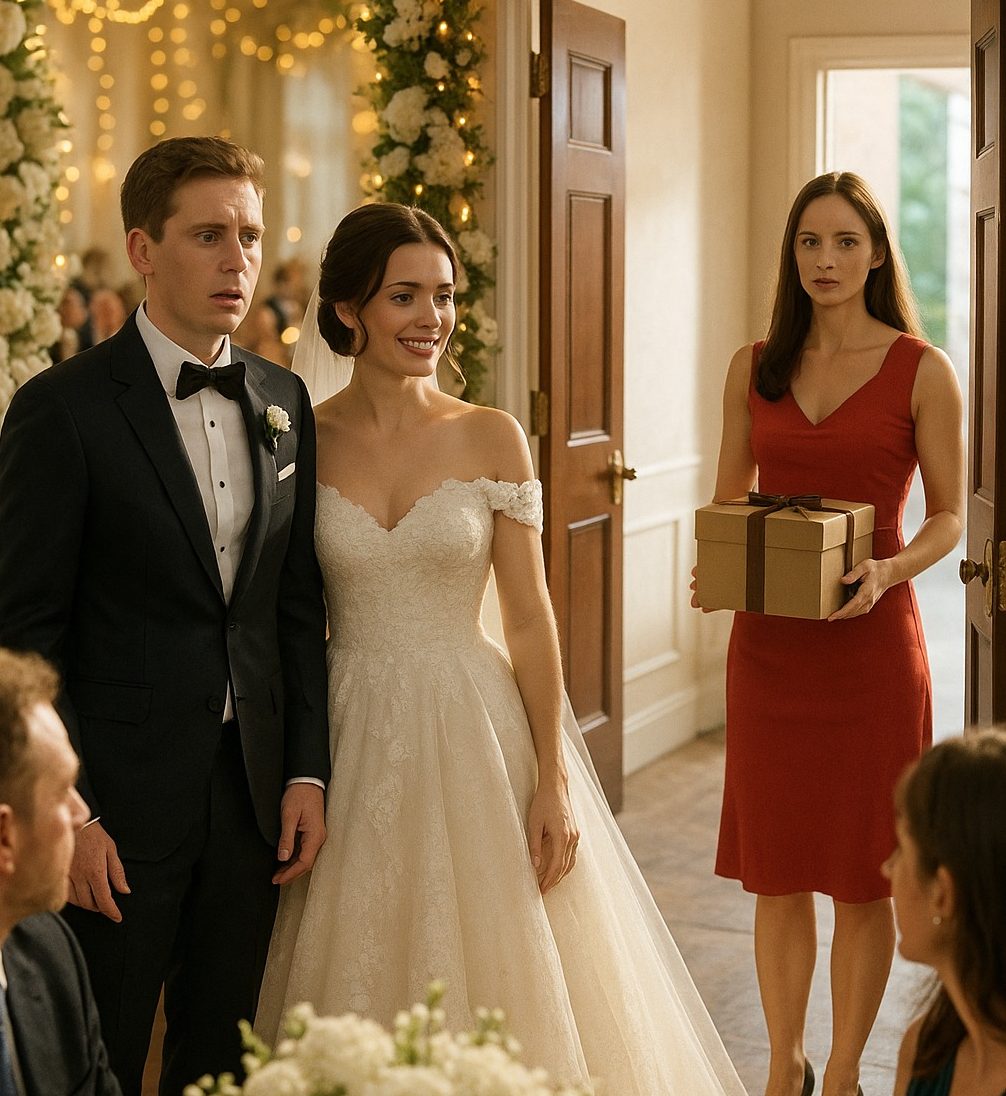I invited my ex-wife, Elena, to my wedding—not out of spite, but as a personal milestone. I believed her presence would symbolize how far I’d come since our divorce. I never expected her to appear with a gift capable of unraveling my whole world.
The invitation had gone out with careful precision: black-ink, handwritten on ivory card stock. Our ceremony would be at an opulent villa perched on Lake Como’s edge—four days of celebration. I pictured Elena watching from a distance, seeing the life I rebuilt: my success, stability, the new woman by my side. A quiet vindication. Then, there she was.
The event was a tableau of luxury. Guests arrived by boat under the golden afternoon sun. Bottles of Dom Pérignon lined mirrored tables. The flower arrangements were sculptural. The orchestra played a sweeping string composition as the shoreline’s reflection danced beneath.
As the ceremony began, I stood beside my bride—soulful, elegant, the embodiment of everything I’d dreamed of. Then, through the arched windows came Elena, radiant in midnight blue, carrying… something.
Time slowed. I watched her descend the steps that led to the terrace. My heart, so used to certainty, hung unsettled in my throat.
Her “gift” was an object I’d once forgotten, thought irretrievably lost: our daughter’s first sketch. The simple crayon drawing of two stick figures holding hands beneath a sun. We’d left it behind twenty years ago in our shared home after the divorce. I had assumed it gone forever.
Elena approached. I turned to watch her face—to read the meaning there. Her lips trembled slightly. She didn’t hand the sketch to me. She placed it on a white pedestal near the floral arch.
The guests murmured. My bride leaned forward, curious. I knelt and lifted the small frame. My breath hitched. The sun in the drawing was mismatched in coloring—my daughter, Maya, had insisted on orange, though the set came with yellow. That little defiance of hers was still in the uneven crayon lines. It was unmistakably hers. And ours.
The wedding guests fell silent, as though the world outside had gone quiet too.
“It’s hers,” Elena said. “She asked me to bring it.” Her voice cracked, soft and desperate.
I steadied myself. Silence. The violin’s final note lingered, melting into the evening air.
Flashback to our daughter, Maya.
She’d been five when we separated. In the rush of packing, moving, legalities—her drawing slipped between couch cushions, then vanished. I never found it. I doubted it even survived. I buried a part of myself that day.
Now, here it was. A relic of innocence, offered in a moment I thought I’d mastered.
Elena swallowed. “She’s seventeen this summer,” she continued. “She wanted me to know… that she still loves you.”
The sketch trembled in my hands as I stared out at the crowd—friends, bosses, mentors—people I invited to witness this chapter of my life. Now, the chapter was rewritten.
I looked at my bride. Her eyes flicked from me to the sketch. She was poised, gracious, but I sensed her heart pounded with questions.
My mouth opened, closed, opened again.
“I… I didn’t know,” I whispered to Elena, then louder. “I’m… overwhelmed.”
In that charged air, Elena said softly, “Our daughter knows you’re happy. She sees you. And she wants us to talk.”
I looked at the family heirloom—her drawing, framed. Decades crumpled in that line drawing returned.
I stepped toward Elena. Into that movement, I was traveling back. The villa’s elegance felt distant. I knelt and retrieved Maya’s sketch.
I turned to face my bride. “I have to see her,” I said. My voice trembled, but my eyes burned.
She nodded slowly. “Go,” she said. “I’ll still say ‘I do’ later.”
I gave her a quick, stunned smile, then turned and walked toward Elena.
Guests exchanged uncertain glances, but the silence remained sacred.
We walked past the tables and the rose petals and the sparkling lights. I looked at Elena’s face—brave, remorseful. She led me to a waiting car, with drivers. I climbed in.
The drive from the villa to the small lakeside cottage felt eternal. The sun sank behind the mountains. I held the sketch on my lap, tracing the uneven sun with shaking fingers.
When we arrived, the door opened, and there she was—Maya, grown up yet unmistakably herself. Eyes wide with surprise, lips pressed into a fragile smile. The years were evident in her posture, but the essence was unaltered.
She ran to me, voice breaking. “I haven’t seen you in… so long.”
I knelt and wrapped her in my arms. She pressed the sketch in my hand. “I drew it when I missed you,” she said softly.
Tears blurred my vision. I whispered, “I’ve missed you too.”
Back at the villa, the crowd waited. Without me, the ceremony was paused. My bride stood regal, yet the moment changed her too—her gaze fixed outward, knowing the life I once abandoned was recalled.
In the car, Elena and I watched father and daughter piece together years of absence. I realized that evening, in the luxury of that lakeside villa, the greatest victory was the return of what I thought I’d lost.
